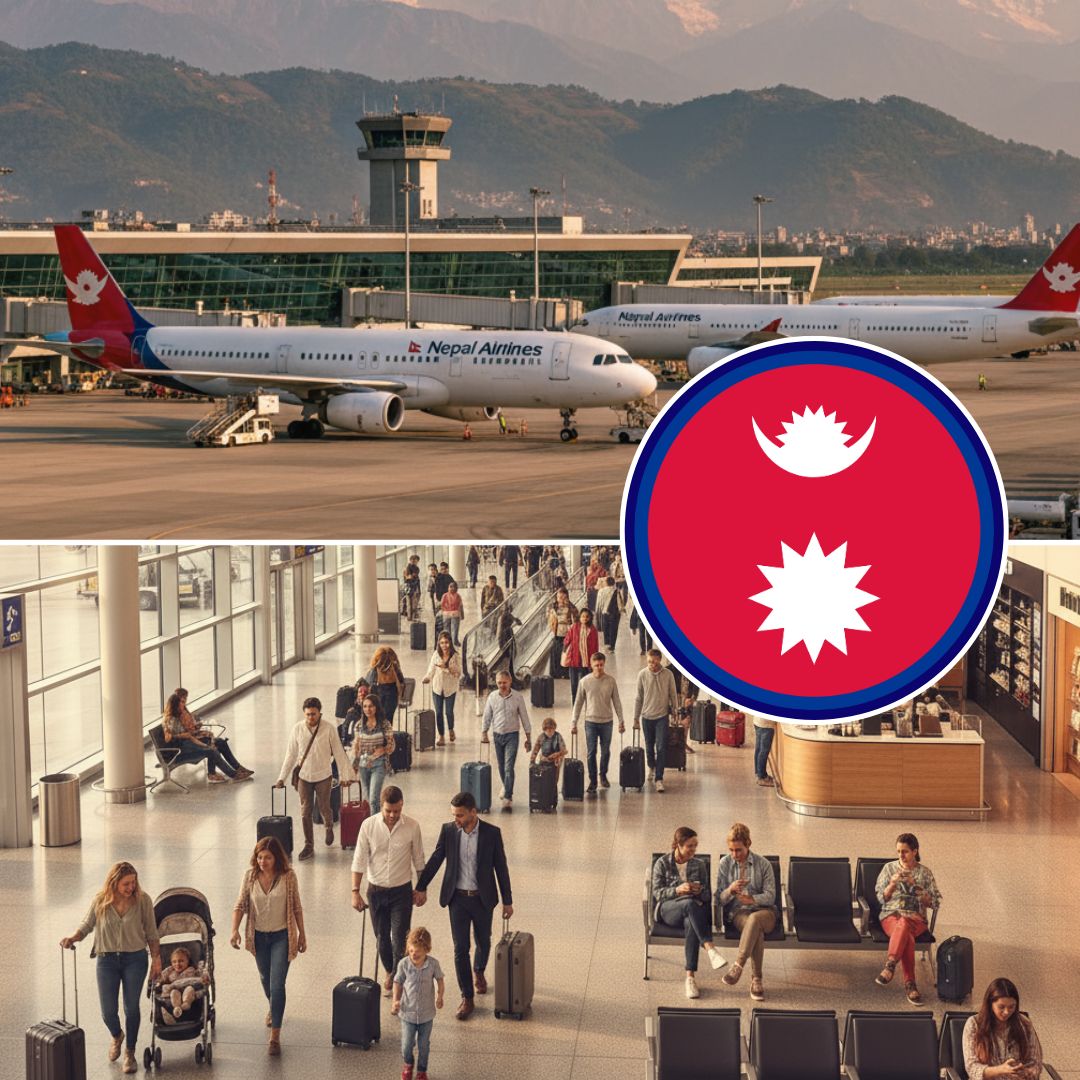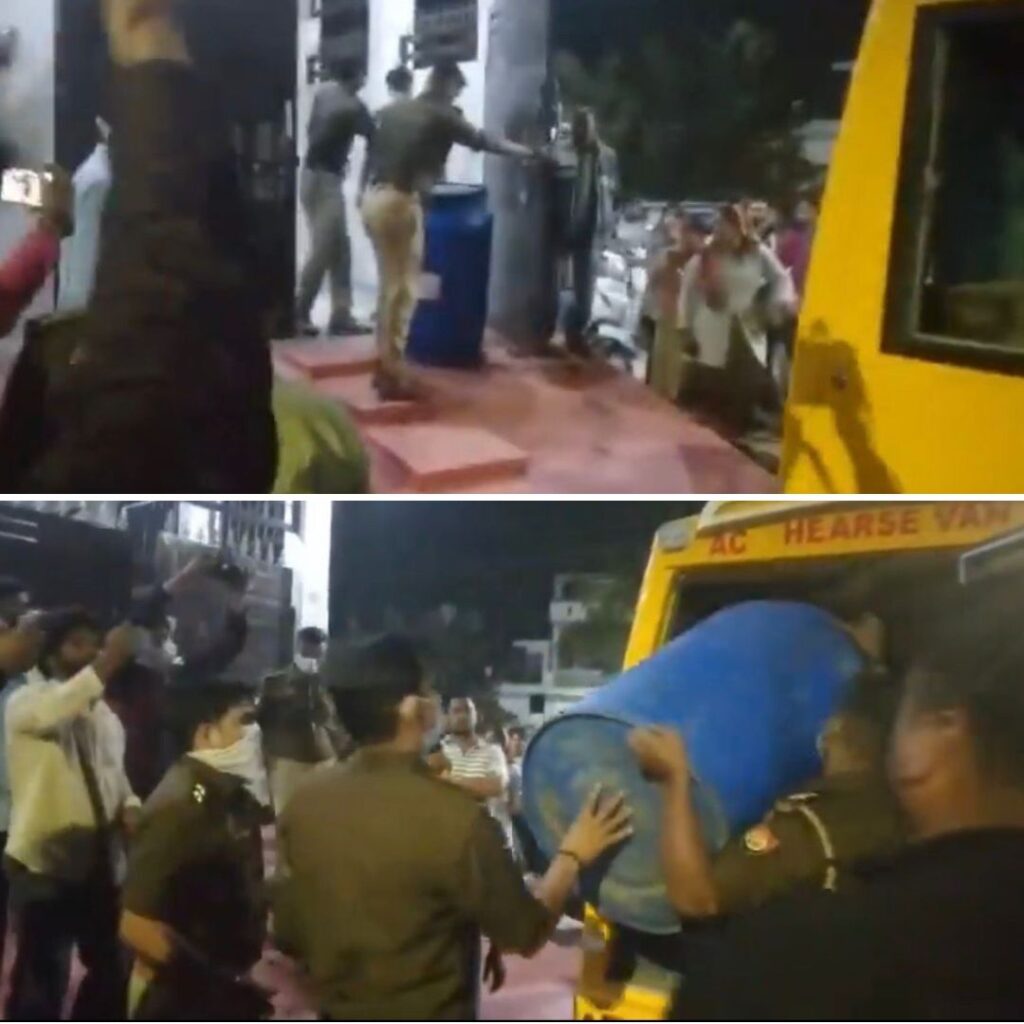Tribhuvan International Airport (TIA) in Kathmandu officially resumed flight operations on September 10, 2025, ending a 24 hour shutdown triggered by escalating violent protests led by young activists across the Kathmandu Valley.
The decision came after a meeting of the airport’s Security Committee, which included aviation and military officials. All domestic and international flights suspended since September 9 were cleared to operate, with passengers advised to confirm updated flight schedules with airlines and carry valid identification and tickets.
The civil aviation authority cited safety concerns as the primary reason for the closure, following incidents of arson, vandalism, and smoke near the runway that posed a threat to aviation security. Protesters had attempted to breach the airport premises, forcing authorities to halt operations temporarily.
The Nepal Army was deployed to provide security at the airport and throughout the capital, arresting 27 individuals involved in looting and violent acts. Fire trucks were also deployed to control fires ignited during demonstrations.
Impact on Passengers and Airlines
The closure disrupted flights significantly, leaving many passengers, including foreign nationals, stranded in Kathmandu. Indian carriers Air India and IndiGo cancelled flights for September 10 amid continuing security concerns, though Air India has offered passengers flexibility to reschedule or receive refunds.
The Nepal Army and tourism stakeholders, including the Hotel Association Nepal, have been working with authorities to assist stranded tourists and create a safe environment for travellers during this period of unrest.
Additional Security Measures and Travel Advisories
In response to the unrest, the Nepal Civil Aviation Authority and security agencies have increased vigilance at Tribhuvan International Airport (TIA) to ensure passenger safety as operations resume. A key focus has been on controlling access to the airport and monitoring for any potential threats linked to ongoing protests.
Following the Security Committee’s directive, travellers are urged to stay in close contact with their airlines for real-time flight updates and to carry all necessary documentation, including official tickets and valid identification. The heightened security presence includes deployment of military personnel to guard critical airport infrastructure, manage crowds, and quickly respond to any emergencies.
Foreign governments, too, have issued travel advisories cautioning their citizens to exercise heightened care amid the volatile situation. The US Embassy and Australian government have advised nationals to avoid unnecessary travel, shelter in place, and comply with curfew orders. These advisories underscore the precariousness of the situation, even as essential services like air travel slowly return to normal.
Protests and Political Background
The protests, predominantly led by Gen Z activists, erupted following an unpopular government ban on 26 social media platforms, including Facebook, Instagram, YouTube, and Twitter (now X). The demonstrations rapidly escalated into violence, resulting in at least 19 deaths and hundreds of injuries nationwide, including clashes within Kathmandu.
The unrest culminated in the resignation of Prime Minister KP Sharma Oli, signalling deep political fissures. Authorities imposed curfews and restricted movement aiming to restore order, but tensions remain high as Nepal navigates this political crisis.
The Logical Indian’s Perspective
The reopening of Tribhuvan International Airport is an important step toward restoring normalcy and connectivity for Nepal amid challenging circumstances. However, the root causes behind the youth-led protests, calls for transparency, democratic engagement, and resistance to censorship, must be addressed through peaceful dialogue and reform. The Logical Indian underlines the importance of empathy, mutual respect, and constructive conversation as essential tools for healing divisions and fostering social harmony.
Kathmandu international airport is open to civilian flights.
— Sidhant Sibal (@sidhant) September 10, 2025
Announcement pic.twitter.com/W5jgW4eRCJ
— Nepal Airlines🇳🇵 (@NepalAirlinesRA) September 10, 2025












